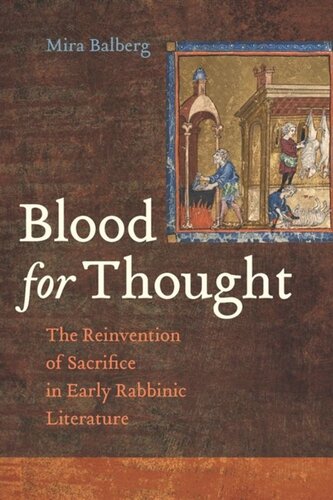

Most ebook files are in PDF format, so you can easily read them using various software such as Foxit Reader or directly on the Google Chrome browser.
Some ebook files are released by publishers in other formats such as .awz, .mobi, .epub, .fb2, etc. You may need to install specific software to read these formats on mobile/PC, such as Calibre.
Please read the tutorial at this link: https://ebookbell.com/faq
We offer FREE conversion to the popular formats you request; however, this may take some time. Therefore, right after payment, please email us, and we will try to provide the service as quickly as possible.
For some exceptional file formats or broken links (if any), please refrain from opening any disputes. Instead, email us first, and we will try to assist within a maximum of 6 hours.
EbookBell Team

5.0
110 reviewsBlood for Thought delves into a relatively unexplored area of rabbinic literature: the vast corpus of laws, regulations, and instructions pertaining to sacrificial rituals. Mira Balberg traces and analyzes the ways in which the early rabbis interpreted and conceived of biblical sacrifices, reinventing them as a site through which to negotiate intellectual, cultural, and religious trends and practices in their surrounding world. Rather than viewing the rabbinic project as an attempt to generate a nonsacrificial version of Judaism, she argues that the rabbis developed a new sacrificial Jewish tradition altogether, consisting of not merely substitutes to sacrifice but elaborate practical manuals that redefined the processes themselves, radically transforming the meanings of sacrifice, its efficacy, and its value.